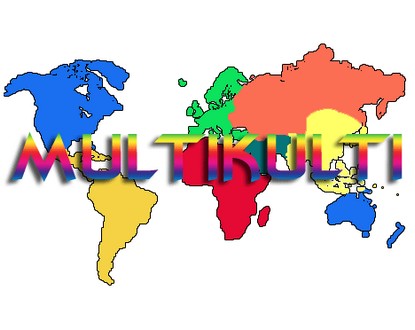Since the 70s, multiculturalism was not only a reality but also a norm. It needed to be supported through the promotion of diversity, and it also needed to be respected because it was the expression of the varied “identities” of various social groups, particularly national and tribal.
That being said, it is now apparent that a balanced multiculturalism was ultimately better than the two phenomena we are facing today.
The first trend is to replace multiculturalism with unconditional acceptance of all cultural phenomena, regardless of their origin and political, religious, social, or spiritual context, even if we don’t know why.
The second threat is monoculturalism, closely associated with nationalistic ideas, intellectually awkward but surprisingly influential.
To some extent, multiculturalism emerged precisely in opposition to monoculturalism.
But nationalism is not the only adversary of multiculturalism; hostility towards other cultures and civilizations is increasingly visible, generating manifestations of fascism and racism.
The greatest virtue of the idea of multiculturalism is certainly the awareness of a multitude of cultures and their differences. Each culture represents or promotes specific values, even if some of them we simply cannot adhere to, as Westerners.
For example, legislation regarding women in some Muslim countries or culinary practices in some Far Eastern countries.
Interestingly, post-multiculturalism is increasingly developing in societies facing very difficult, and sometimes still unresolved, issues related to cultural diversity.
It primarily concerns immigrants who have no intention of participating in the culture or politics of the country where they reside. This creates a real problem. This phenomenon is particularly visible in France.
Experimentation with various forms of soft coercion (such as learning the history of the country) does not appeal by its substance or its effectiveness.
The facts show another truth: some immigrants, particularly Muslims, come from countries that openly encourage an anti-Western stance. Why should they suddenly become Western?
If, as Samuel Huntington claims with his “clash of civilizations,” cultural differences are a fact and can transform into complete hostility, what is then the meaning of multiculturalism, and even of tolerance? Should we consider the “others” as our potential enemies?
But quickly, one realizes that in reality, we cannot cling to anything. The truth is that words full of pride about European roots are generally as proud as they are empty.
Dividing the world into “us” and “the other barbarians” whom we must block physically and spiritually can only lead to disaster.
The solution must be sought within ourselves because, to live peacefully with others, one must first be at peace with oneself.


